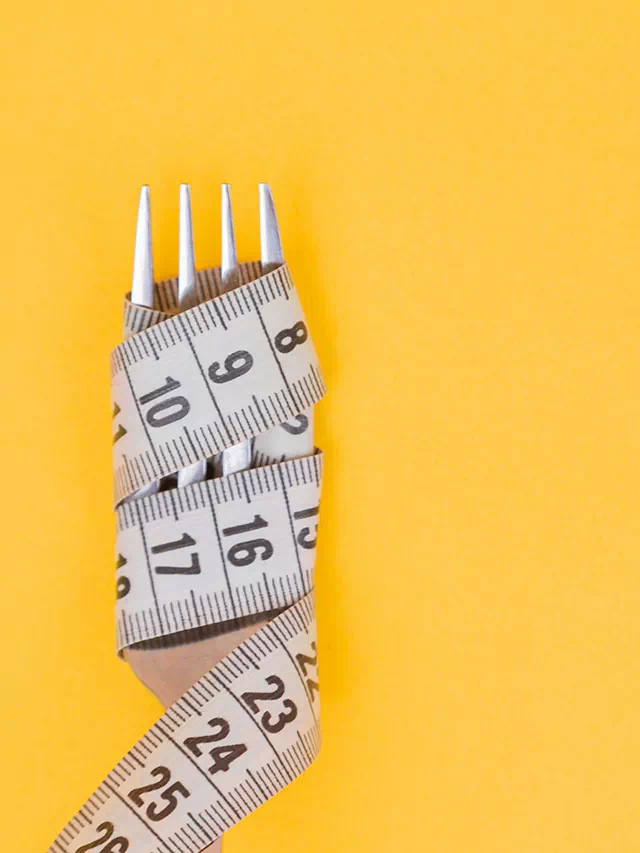It can include a brief overview of the topic, the purpose or goal of the piece, and any relevant context or background information. The introduction should capture the reader’s or listener’s attention and make them want to continue reading or listening.
- Crash dieting or excessive calorie restriction can lead to nutrient deficiencies, fatigue, and an increased risk of weight gain once normal eating habits resume.
- Rapid weight loss can also lead to the loss of muscle mass, which can slow down your metabolism and make it harder to maintain weight loss in the long term.
- Skipping meals can cause overeating later on, as well as disrupt your metabolism.
- Relying on supplements or “magic” weight loss products can be dangerous and ineffective.
- Neglecting physical activity and focusing only on diet can lead to a slower weight loss and muscle loss.
- Not getting enough sleep or managing stress can disrupt hormones that regulate hunger and metabolism.
- Not seeking guidance from a healthcare professional before starting a weight loss plan can be risky for people with certain health conditions.
- Not tracking your progress: It’s important to track your progress, whether it’s through measurements, photos, or tracking your weight, to know how your body is responding to your weight loss plan and make adjustments as necessary.
- Neglecting mental health: Losing weight can be a challenging process, and it’s important to take care of your mental health by addressing any underlying emotional or psychological issues related to food and body image.
- Being too hard on yourself: It’s important to be kind and patient with yourself during the weight loss process. Remember that weight loss is not linear and there will be days when progress seems slow or non-existent. Don’t let setbacks discourage you from continuing on your journey.
- Not taking the time to plan and prepare healthy meals: Many people find it challenging to stick to a healthy diet when they don’t have healthy options readily available. Take the time to plan and prepare healthy meals and snacks to have on hand when hunger strikes.
- Ignoring the role of hydration: Drinking enough water is essential for weight loss. It can help to control hunger, boost your metabolism and flush out toxins. So, make sure to drink enough water throughout the day.
- Not listening to your body: It’s important to pay attention to your body’s signals and to not overdo it with exercise or under eat. Your body needs proper nutrition and rest to function properly and support weight loss.
- Neglecting your gut health: The health of your gut plays a vital role in weight loss. Improper gut health can lead to inflammation, nutrient deficiencies, and weight gain. Make sure to include plenty of probiotics and fiber-rich foods in your diet, and avoid processed and sugary foods which can disrupt gut health.
- Not being mindful of portion sizes: Eating too much of even healthy foods can lead to weight gain. Be mindful of the portion sizes of your meals, and use measuring cups or a food scale to help you keep portion sizes in check.
- Not having a support system: Losing weight can be a challenging process, and it’s important to have a support system in place to help you stay motivated and on track. Surround yourself with people who will encourage and support you, whether it’s friends, family, or a support group.
- Not allowing yourself to indulge occasionally: Deprivation can lead to overeating and feelings of resentment. It’s important to allow yourself to indulge in your favorite foods occasionally, in moderate amounts, to avoid feeling deprived and to make weight loss more sustainable.
- Not varying your exercise routine: Doing the same exercise routine repeatedly can lead to a plateau in your weight loss progress and also increase the risk of injury. Mixing up your exercise routine and challenging your body in different ways will not only keep it interesting but also help to continue to burn calories and build muscle.
- Focusing too much on the scale: The scale can be a useful tool, but it’s important to remember that it doesn’t tell the whole story. It’s important to track your progress using other methods as well, such as measuring your body composition, taking progress photos and tracking your body measurements.
- Not allowing for flexibility in your diet: Being too restrictive with your diet can lead to feelings of deprivation and ultimately cause you to give up on your weight loss goals. It’s important to allow for flexibility in your diet and listen to your body’s needs.
- Not getting enough protein: Protein is essential for weight loss as it helps to preserve muscle mass, keep you feeling full and also helps to boost your metabolism. Make sure to include plenty of lean protein sources in your diet such as chicken, fish, legumes, and eggs.
- Neglecting the role of sleep: Sleep plays a crucial role in weight loss. Lack of sleep can disrupt hormones that regulate appetite and metabolism, leading to weight gain. Make sure to get 7-8 hours of quality sleep each night to support weight loss.
- Not understanding the role of macronutrients: Macronutrients (carbohydrates, proteins, and fats) play a crucial role in weight loss. Each macronutrient has a specific function in the body and it’s important to have the right balance of them in your diet to achieve weight loss.
- Ignoring the role of micronutrients: Micronutrients (vitamins and minerals) are also important for weight loss. These nutrients are essential for optimal metabolic function and can support weight loss efforts by aiding in energy production, reducing inflammation, and promoting a healthy metabolism.
- Not considering other factors that may be impacting weight loss: Other factors such as medication, hormonal imbalances, and underlying medical conditions can impact weight loss efforts. It’s important to address these factors and consult with a healthcare professional to ensure that weight loss is safe and appropriate for you.
- Not being realistic about weight loss goals: It’s important to set realistic weight loss goals and to not aim for an unrealistic weight loss in a short period of time. Losing 1-2 pounds per week is a healthy and sustainable rate of weight loss.
- Not being prepared for weight loss plateaus: Plateaus are a normal part of the weight loss journey and they happen when the body adapts to the changes in diet and exercise. Being prepared and having a plan in place to overcome plateaus can help you to stay motivated and on track with your weight loss goals.
- Not considering the impact of stress: Stress can play a significant role in weight loss by triggering the release of cortisol, a hormone that can lead to weight gain and make it harder to lose weight. It’s important to find ways to manage stress, such as through exercise, meditation, or therapy, to support weight loss efforts.
- Not understanding the role of fiber: Fiber is an important nutrient for weight loss as it helps to keep you feeling full and can also help to regulate blood sugar levels. Make sure to include plenty of high-fiber foods in your diet, such as fruits, vegetables, whole grains, and legumes.
- Not understanding the impact of alcohol on weight loss: Alcohol is high in calories and can lead to weight gain if consumed in excess. It’s important to be mindful of alcohol consumption and to limit it to moderate amounts or cut it out completely if it’s hindering weight loss efforts.
- Not considering your eating habits: Understanding your eating habits, such as why and when you eat, can help you to identify any triggers that may be causing overeating and make changes to support weight loss.
- Not being consistent with your weight loss efforts: Consistency is key when it comes to weight loss. It’s important to stick to a healthy diet and exercise routine, even on days when you don’t feel motivated. Consistency over time will lead to better results.





